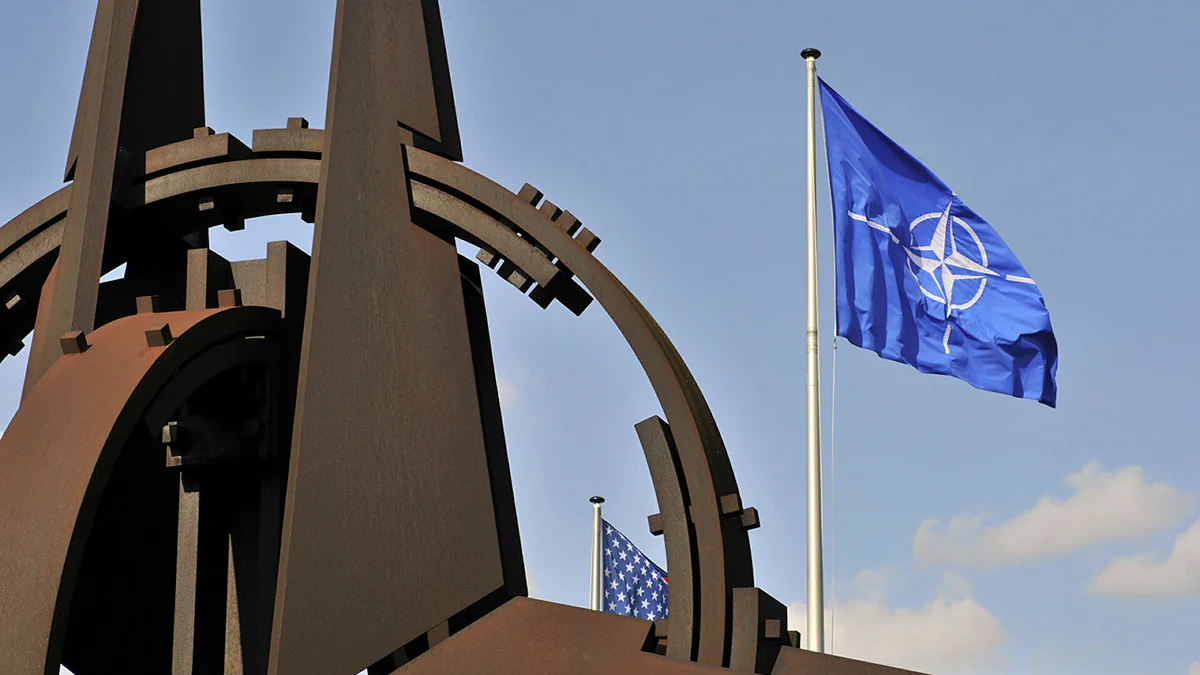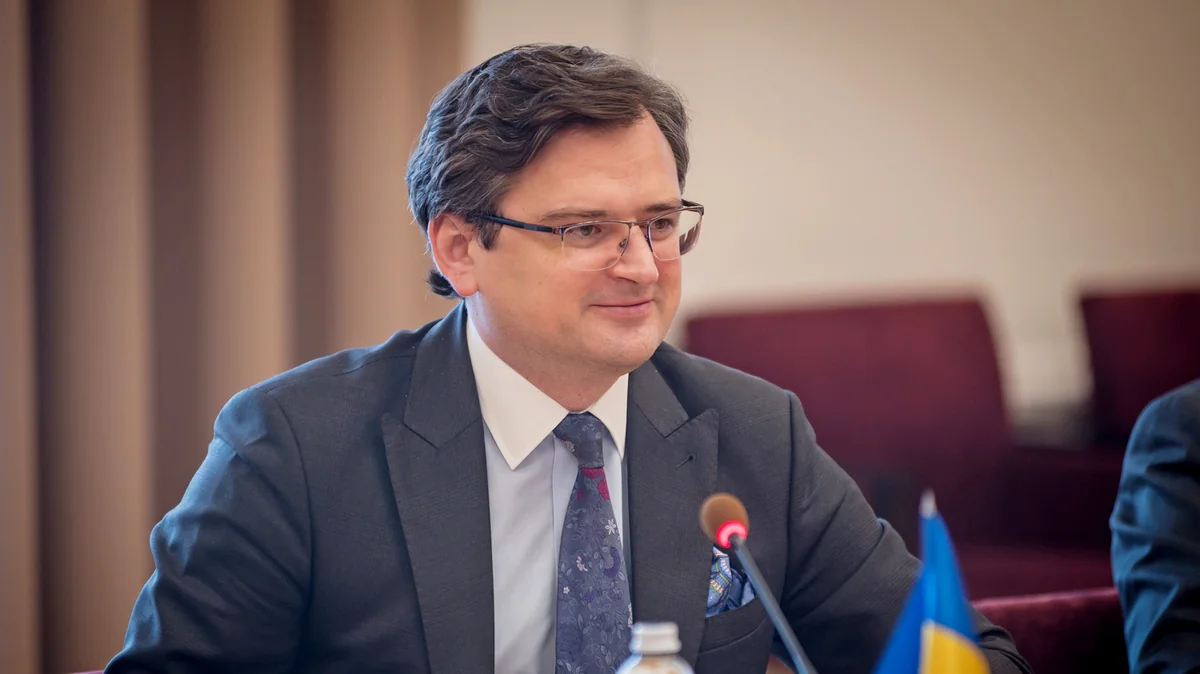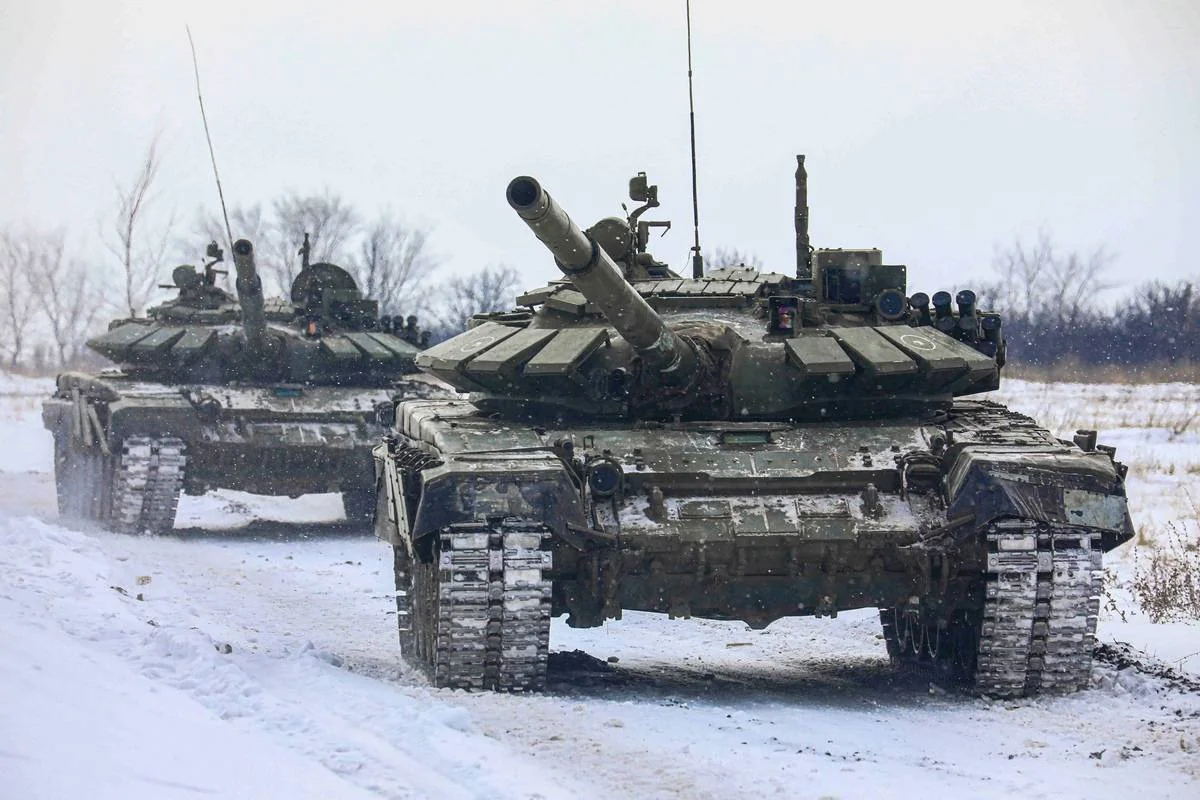Russia-Ukraine tension without mediator - unchanging positions
- 17 February, 2022
- 11:50

Tensions are running high in Russian-Ukrainian relations. The parties are weakening trust in each other by trading accusations. Unfortunately, the activities of the mediators working to resolve the tension are weak or almost non-existent. Ukraine is demanding that its territorial integrity and sovereign rights be protected. Russia is cautious of the deployment of NATO forces on its borders, assessing Ukraine's membership in the alliance as a security threat. Official Moscow and Kyiv are concentrating additional troops on the borders. The United States and its allies are defending Ukraine's sovereignty and territorial integrity. Although the implementation of the principles of the Normandy format is being discussed, no real steps have been made.
A meeting of NATO defense ministers started on February 16 and is underway today. The meeting made a statement on the situation around Ukraine: "We are deeply concerned about Russia's large-scale, unsubstantiated military build-up in and around Ukraine, as well as in Belarus. We call on Russia to choose the path of diplomacy in conformity with its international obligations and immediately suspend the concentration of military forces and withdraw its troops from Ukraine. We remain committed to our dual approach to Russia: deterrence and defense by being open to dialogue."
The situation around Ukraine was also discussed during a telephone conversation between US President Joe Biden and German Chancellor Olaf Scholz yesterday. "There is still a risk of military escalation around Ukraine, and a constructive dialogue is vital," the German government said after a telephone conversation.

A few days ago, Ukraine officially demanded a response from Russia within 48 hours to clarify the military exercises near its borders. Ukrainian Foreign Minister Dmytro Kuleba said that Kyiv had asked Moscow for detailed information on the military exercises along the border and in Crimea: “In keeping with the provisions of the Vienna Document, Russia must provide the exact territories for a military drill, its start and completion dates, as well as the name and subordination of military units, as well as the types and number of weapons and military equipment engaged in military exercises.” However, Russia ignored official Kyiv’s 48-hour deadline and in doing so, Moscow has shown that it does not care about Ukraine's statements.

The Russian Defense Ministry said on February 17 that the military equipment of the tank detachment of the Russian Western Military District is returning to its permanent location. It was noted that tanks and other armored vehicles with caterpillars will be transported by rail for about a thousand kilometers. The chief of the British Defense Intelligence, Lieutenant General Jim Hockenhull, said that although Moscow had said it was withdrawing troops from the border with Ukraine, it continued to concentrate troops in the region. "There is no evidence that Russia has pulled out troops from the border with Ukraine," he said. US sources say the Kremlin has deployed an additional 7,000 troops on the border with Ukraine. Ukrainian President Volodymyr Zelensky also said that Russia did not withdraw troops from the border. It can be concluded that Moscow has not retreated from its political and military positions. The Kremlin has not yet responded to US and NATO conditions. Moscow has said it will respond when Russian President Vladimir Putin deems it appropriate. There is a lot of mystery behind the phrase "appropriate time". It can be assumed that with vague behavior and statements, Russia is trying to make the opposite side take a wrong step in the psychological war between the parties. In doing so, it seeks to shift the responsibility for possible military intervention in Ukraine to the other side. Actually, there are many other excuses for official Moscow to intervene in Ukraine. The slogan "we do not leave ours in dire straits" belongs to the Kremlin. The intervention in Ukraine in 2014 began with this slogan. The Spokesperson for the U.S. Department of State Ned Price said Russia was trying to use pretexts such as "genocide" and "massacre" in Donbas to intervene in Ukraine.

Apparently, this tension may continue for a long time. Such a situation is due to mutual mistrust. In addition, state and international organizations that can mediate between the parties have a specific position. From this point of view, the question "will there be a war between Russia and Ukraine" remains topical. It is unlikely that the two states will openly go to war. At the same time, it is not ruled out that Ukraine will conduct anti-terrorist operations. They have conducted such operations before.

Russia is still trying to be more restrained in the face of the Western bloc. It wants to prove that it is securing its interests and security by its behavior. But, of course, all this serves the overall tension, as well as the tension within the parties themselves. Thus, the likelihood is high that the tensions within Russia and Ukraine will one day turn into a social explosion.
So far Russia is a party to the conflicts in the territories of the former Soviet republics in this or another way. At present, every soldier and military equipment moving along the Ukrainian border is funded from the Russian state budget. Prolonged tensions around Ukraine increase these costs...
